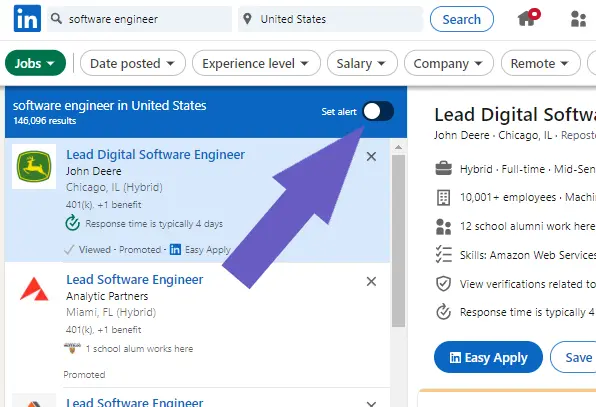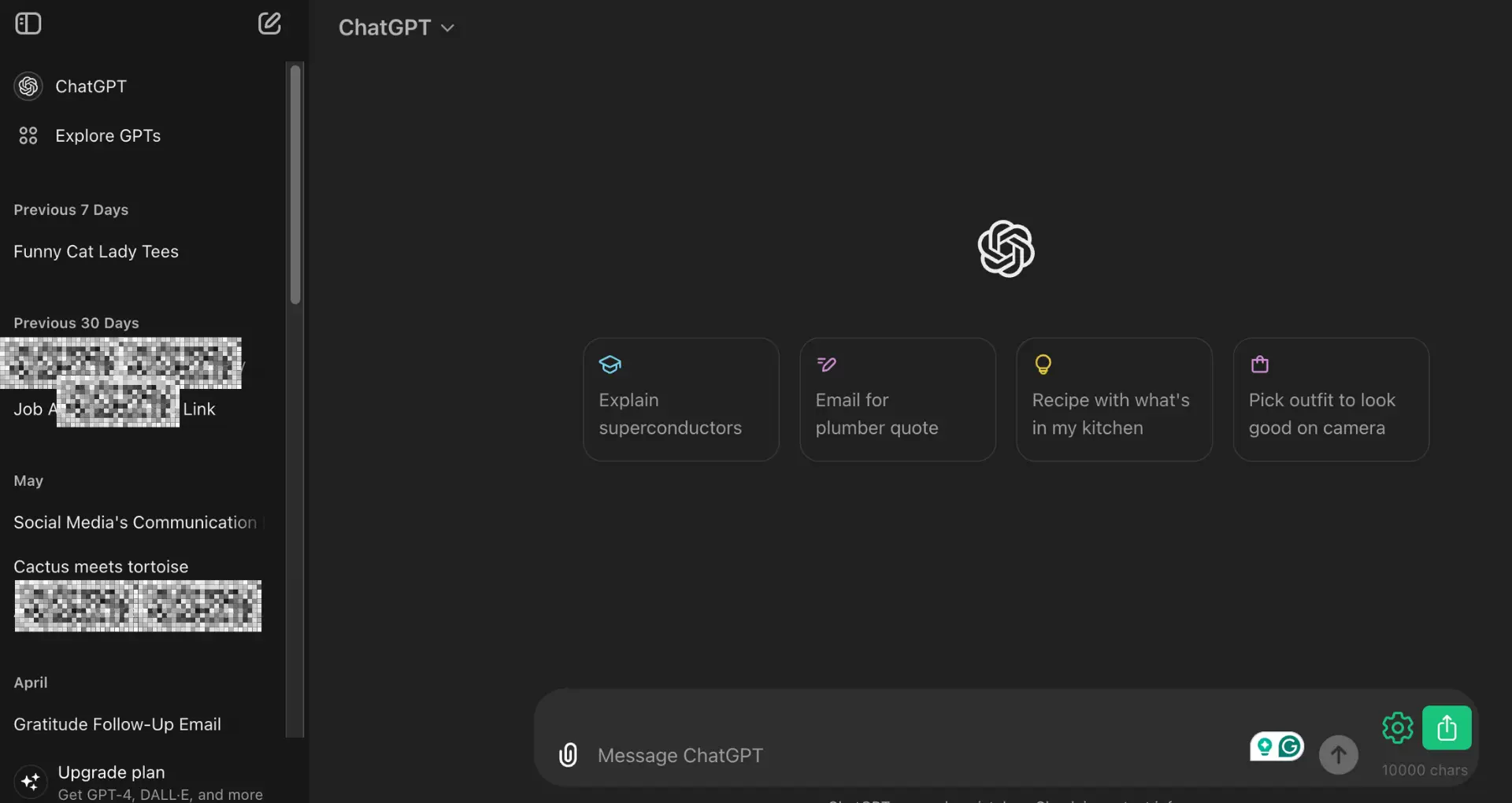





Have you ever accidentally deleted an important LinkedIn message and panicked, thinking it was lost forever? Don't worry, you're not alone. Losing critical business communications can be stressful, but with the right knowledge, recovering deleted LinkedIn messages is possible.
In this comprehensive guide, we'll walk you through the step-by-step process to retrieve your lost messages, including checking archives, understanding LinkedIn's data retention policies, and even requesting help from LinkedIn support. Plus, we'll share proactive tips to back up your messages so you never lose them again.
And for those who want to save time, we'll introduce AI-powered automation to simplify the process. By the end of this post, you'll be a LinkedIn message recovery pro, ready to take on any messaging mishap with confidence.
Before attempting to recover deleted LinkedIn messages, it's crucial to understand how LinkedIn handles message deletions and retains data. When a user deletes a message, it's not immediately erased from LinkedIn's servers. LinkedIn retains deleted messages for a certain period before permanently purging them, in accordance with their data retention policies and legal obligations.
When you delete a message on LinkedIn, it's removed from your inbox and the recipient's inbox. However, the message isn't instantly erased from LinkedIn's servers. LinkedIn keeps a backup of the deleted message for a specified duration before permanently deleting it.
For example, if you accidentally delete an important message from a potential employer and realize it within a few days, there's a chance you can still recover it before LinkedIn's system permanently purges the message. For more insights, consider using a LinkedIn integration tool to manage your communications efficiently.
LinkedIn retains deleted messages for a certain period before permanently erasing them. The exact duration may vary depending on factors such as the type of message, applicable laws, and LinkedIn's internal policies.
LinkedIn's data retention policies aim to balance user privacy with legal requirements and the need to maintain data integrity. While the company doesn't disclose the specific retention period for deleted messages, it's generally believed to be around 30-90 days.
In some cases, LinkedIn may be required to retain messages for longer periods due to legal obligations or compliance requirements. This is known as a "legal hold" or "compliance retention policy."
If LinkedIn receives a valid legal request, such as a subpoena or court order, they may be compelled to preserve relevant messages beyond the standard retention period. Legal holds supersede regular deletion schedules to ensure data is available for legal proceedings.
Understanding these key terms and how they impact message recovery is essential when attempting to retrieve deleted LinkedIn messages. In the next section, we'll explore how to check your LinkedIn message archives for deleted conversations.
Automate your LinkedIn data tasks effortlessly. Check out Bardeen's LinkedIn profile scraper to save time and keep your data organized.
If you've accidentally deleted an important LinkedIn message, don't panic. LinkedIn maintains message archives that may contain your deleted conversations. By accessing your message archives, you can check if the deleted messages are still recoverable. However, it's important to note that the archive has limitations on how far back it goes and what message types are included.
To check if your deleted LinkedIn messages are still available in the archives, follow these simple steps:
Keep in mind that the archive may not contain messages that were deleted a long time ago, as LinkedIn periodically purges old data from its servers.
LinkedIn's message archives have certain limitations that you should be aware of when trying to recover deleted messages. The archives may not go back indefinitely, meaning messages deleted beyond a certain timeframe might not be available.
Additionally, not all message types may be included in the archives. For example, InMail messages or sponsored messages might have different retention policies compared to regular direct messages between connections.
If you have a large number of archived messages, finding a specific deleted conversation can be challenging. Luckily, LinkedIn offers a search functionality within the message archives.
Use keywords related to the deleted message, such as the sender's name or specific terms from the conversation, to narrow down your search results. This can help you locate the deleted message more quickly. For more efficient data management, consider using a LinkedIn data scraper to keep your information organized.
LinkedIn's message archive is a valuable tool for recovering accidentally deleted conversations. By understanding how to access the archives and being aware of its limitations, you can increase your chances of successfully retrieving important deleted messages.
Next up, we'll explore how to request assistance from LinkedIn support if you're unable to find your deleted messages in the archives.
If you're unable to locate your deleted LinkedIn messages in the archives, your next step is to reach out to LinkedIn's support team for assistance. While there's no guarantee they can recover the messages, it's worth submitting a request, especially if the conversations are critical. Be prepared to provide specific details about the deleted messages to help LinkedIn's support team investigate the issue.
To request help with recovering deleted messages, navigate to LinkedIn's Help Center and look for the contact form or email address to get in touch with their customer support. You may need to log in to your LinkedIn account to access the form.
When filling out the support request, be as detailed as possible about the deleted messages. Include information such as the approximate date range of the conversations, the names of the people involved, and any specific details you remember about the message content. This will help LinkedIn's team narrow down their search and increase the chances of locating the deleted messages.
To process your request, LinkedIn's support team will likely need the following information:
The more details you can provide, the better equipped LinkedIn's team will be to investigate the issue and attempt to recover the deleted messages.
After submitting your support request, be patient as LinkedIn's team looks into the matter. The time it takes to receive a response can vary depending on the complexity of the issue and the volume of support requests they're handling.
Keep in mind that the chances of successful message recovery may depend on how long ago the deletion occurred. LinkedIn likely has a data retention policy that dictates how long they keep deleted messages before permanently purging them from their servers. If the messages were deleted beyond that timeframe, recovery may not be possible.
LinkedIn's support team will keep you updated on the progress of your request and inform you if they were able to locate and recover the deleted messages.
Requesting assistance from LinkedIn support is a viable option when attempting to recover important deleted messages. By providing detailed information and being patient with the process, you'll give yourself the best chance of a successful recovery.
For a more efficient way to manage your LinkedIn data and avoid losing messages, consider using automated tools for LinkedIn data offered by Bardeen. These can help you back up and organize your important information.
In the next section, we'll explore proactive measures you can take to back up your LinkedIn messages and prevent permanent data loss.
Regularly backing up your LinkedIn messages is crucial to avoid losing important conversations due to accidental deletion or account issues. While LinkedIn provides options to recover deleted messages, taking a proactive approach ensures you always have a copy of your valuable exchanges. In this section, we'll explore manual and automated methods for backing up your LinkedIn messages, so you can rest easy knowing your data is secure.
Imagine you've been communicating with a potential client or valuable connection through LinkedIn messages, and suddenly, those conversations disappear. This scenario highlights the importance of regularly backing up your LinkedIn messages. By having a backup, you can easily reference past discussions, even if they're no longer accessible on the platform.
For example, if you're using LinkedIn to negotiate a business deal, having a record of the agreed-upon terms can be invaluable. Regular backups ensure that you always have access to this information, even if messages are accidentally deleted or your account experiences technical issues.
One simple way to back up your LinkedIn messages is by manually copying and pasting important conversations into a separate document. This method allows you to selectively save the most critical exchanges and store them on your computer or in a cloud-based service like Google Drive or Dropbox.
Another manual backup option is to take screenshots of your LinkedIn messages. This approach is quick and easy, and it preserves the visual context of the conversation. However, keep in mind that searching for specific information within screenshots may be more challenging compared to plain text backups.
If you want a more efficient and comprehensive solution for backing up your LinkedIn messages, consider using third-party tools or browser extensions. These tools can automate the backup process, saving you time and effort.
For instance, some browser extensions can automatically save your LinkedIn messages to a designated folder on your computer or a cloud storage service. They may also offer features like scheduled backups and the ability to search through your saved conversations.
Consider using tools that automate sales prospecting, as they might also provide solutions for backing up messages. When choosing a third-party tool for backing up your LinkedIn messages, be sure to research the provider thoroughly and read reviews from other users. Look for a reputable tool that prioritizes data security and offers reliable customer support in case you encounter any issues.
By implementing a combination of manual and automated backup methods, you can create a comprehensive system for safeguarding your LinkedIn messages. Regular backups provide peace of mind and ensure that you always have access to important conversations, even if the worst happens.
Taking a proactive approach to backing up your LinkedIn messages is a smart habit that can save you from potential data loss headaches down the road.
Thanks for sticking with us through this in-depth guide on recovering deleted LinkedIn messages! We hope you've found the information helpful and feel empowered to take control of your LinkedIn data. Remember, a little proactive backup can go a long way in preserving your valuable conversations.
Knowing how to recover deleted LinkedIn messages is essential for maintaining important professional connections and conversations. This guide covered:
By mastering these techniques, you can avoid the frustration and missed opportunities that come with permanently lost LinkedIn conversations.










SOC 2 Type II, GDPR and CASA Tier 2 and 3 certified — so you can automate with confidence at any scale.
Bardeen is an automation and workflow platform designed to help GTM teams eliminate manual tasks and streamline processes. It connects and integrates with your favorite tools, enabling you to automate repetitive workflows, manage data across systems, and enhance collaboration.
Bardeen acts as a bridge to enhance and automate workflows. It can reduce your reliance on tools focused on data entry and CRM updating, lead generation and outreach, reporting and analytics, and communication and follow-ups.
Bardeen is ideal for GTM teams across various roles including Sales (SDRs, AEs), Customer Success (CSMs), Revenue Operations, Sales Engineering, and Sales Leadership.
Bardeen integrates broadly with CRMs, communication platforms, lead generation tools, project and task management tools, and customer success tools. These integrations connect workflows and ensure data flows smoothly across systems.
Bardeen supports a wide variety of use cases across different teams, such as:
Sales: Automating lead discovery, enrichment and outreach sequences. Tracking account activity and nurturing target accounts.
Customer Success: Preparing for customer meetings, analyzing engagement metrics, and managing renewals.
Revenue Operations: Monitoring lead status, ensuring data accuracy, and generating detailed activity summaries.
Sales Leadership: Creating competitive analysis reports, monitoring pipeline health, and generating daily/weekly team performance summaries.